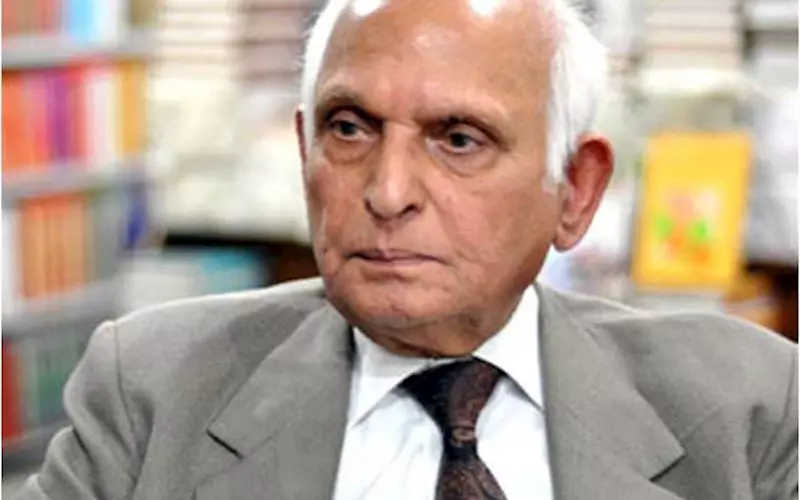Urdu author Intizar Husain passes away at 92
India-born Pakistani author, Intizar Husain, considered to be one of the greatest writers of Urdu, passed away on 2 February 2016 in Lahore, Pakistan. He was 92.
03 Feb 2016 | By PrintWeek India
Revered by readers of Urdu and Hindi, Husain, whose works have been translated into English only sporadically, received a late but deserving recognition when he was shortlisted for the Man Booker International Prize in 2013. He was also awarded France's Ordre des Arts et des Lettres in 2014.
A chronicler of change, Husain was a short story writer, novelist, columnist and poet. Today, he is known for his five novels and seven collections of short stories.
Basti, his 1979 novel, traces the history of Pakistan through the life of one man, Zakir. This is his only novel, which has been translated into English, by Frances W Pritchett, besides five volumes of his short stories. Basti was recently republished as one of the New York Review of Books classics.
In the novel, Zakir lives in a dynamic, conflictual and contradictory world. Throughout the novel, there are threads of nostalgia, displacement and ruptured continuities. The Partition of India in 1947 is the centre of the novel’s sombre, impressionistic landscape. That year turns everything topsy-turvy, and more so, it transforms the fate of the basti (settlement).
Among his other books, Naya Gar (The New House), paints a picture of Pakistan during the ten-year dictatorship of General Zia-ul-Haq. Agay Sumandar Hai (Ahead is the Sea) contrasts the spiraling urban violence of contemporary Karachi with a vision of the lost Islamic realm of al-Andalus, in modern Spain.
His other works include Hindustan Se Aakhri Khat (The Last Letter from India), Shehr-e-Afsos, Janam Kahanian and Wo Jo Kho Gaye (Those Who are Lost).
Husain is known for his nostalgia for older places and phenomena. Keki Daruwalla, writing in The Hindu in 2003, said, “Intizar Husain’s stories often tread that twilight zone between fable and parable. And the narrative is spun on an oriental loom.”
Born on 7 December 1923 in Dibai, Bulandshahr, Husain migrated to the newly formed Pakistan in 1947, an experience he wrote about 50 years later in The First Morning. The short story captures the horror and optimism that accompanied the Partition of India where an estimated 14 million people were displaced, the largest mass migration in human history.
He had a master’s degree in Urdu and worked for the Urdu daily, Imroze, and later, the Urdu daily Mashriq.
He was also a regular literary columnist for Pakistan’s leading English-language daily Dawn, and in later years became known as a voice of moderation and advocate of what he saw as the subcontinent’s ancient traditions of pluralism and tolerance.
He received the Lifetime Achievement award at the Lahore Literary Festival in 2012.
Husain’s wife Aliya Begum died in 2004. The couple had no children.
Fellow Urdu writer Munnu Bhai told the media after his death: “Intizar Husain was a man of letters. His death has left a huge gap in the literary circle of the subcontinent that would be felt of the centuries to come.”
Author Kamila Shamsie twitted, “Cruel of the world to take away both Urdu literature’s great Husains, Abdullah and Intizar, in such a short period.”
Read Intizar Husain’s novel Basti online at http://www.columbia.edu/itc/mealac/pritchett/00litlinks/basti/.
(From news sources)











 See All
See All